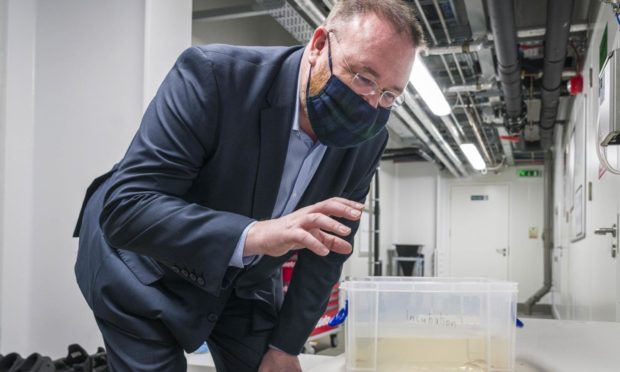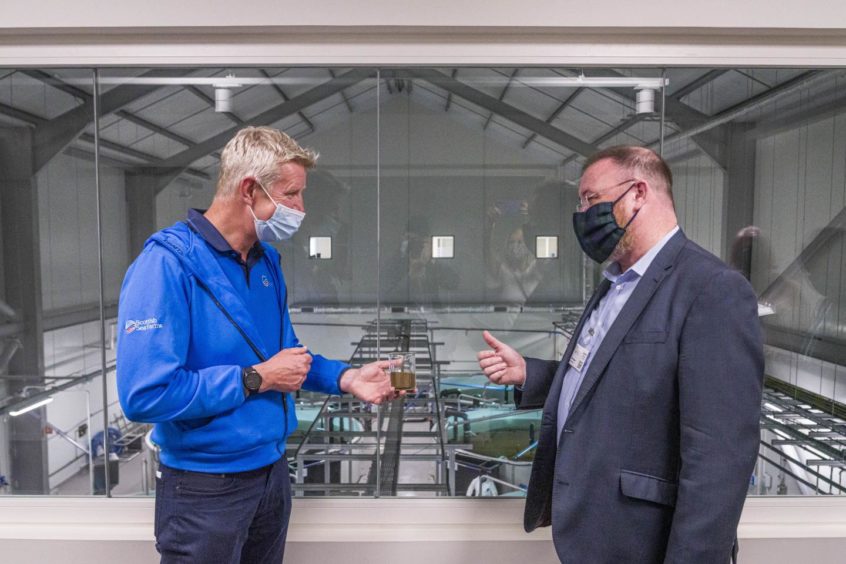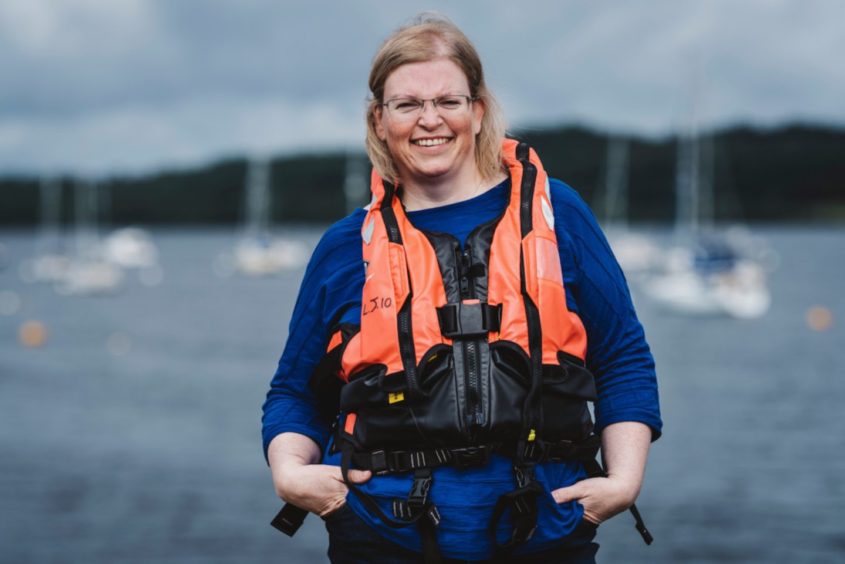Green technologies in the Scottish salmon farming industry impressed Scotland Office Minister David Duguid during a visit to a west coast hatchery today (June 17).
Mr Duguid was at the Scottish Sea Farms (SSF) operation at Barcaldine, near Oban, as part of Argyll and Bute visits focused on the country’s transition to net-zero.
Accompanied by senior figures from industry body Scottish Renewables, the minister was given a one-hour tour of the £58 million hatchery.
I’ve been so impressed at the green approach of this state-of-the-art facility.”
Scotland Office Minister David Duguid
Amongst the green technologies on show was a 600-kilowatt biomass energy system owned, installed and maintained by AMP Clean Energy.
The system uses locally sourced, sustainably managed wood chips to provide the 188,400sq ft building with much of its heat and hot water – saving an estimated 683 tonnes of carbon annually, compared with using oil, or the equivalent of six million road miles per year by car.
Also on show was the hatchery’s recirculating aquaculture system (RAS), which delivers much greater control over the key growth factors of water quality, oxygen levels, temperature, speed of flow and light.
Greener and cleaner
RAS technology also offers several environmental benefits, including the ability to clean and recirculate up to 98% of the freshwater used.
It also allows fish farmers to capture waste material from the growing cycle – primarily faeces and any uneaten feed – for treatment and re-purposing as nutrient-rich agricultural fertiliser to aid crop development.
Green technologies elsewhere on the site include motion-sensor internal lighting, and wind and solar powered external lighting.
There is also provision for a hydro-electricity scheme to allow the hatchery to generate more energy in a greener way.
Mr Duguid said: “I’ve been so impressed at the green approach of this state-of-the-art facility.
“Scottish Sea Farms’ water-saving and waste-recycling measures, coupled with the use of AMP Clean Energy’s environmentally-sound biomass heating system, prove that it is possible to forge ahead in innovation to sustain the sector while still meeting our net-zero objectives.”
He added: “The UK Government has ambitious climate commitments, and it’s by embracing measures such as these and accelerating decarbonisation that industry will be future-proofed to protect and create jobs.”
Leading the tour was SSF’s head of sustainability Anne Anderson who said: “Like any food producer, we’re working hard to minimise any impact from our activities on the environment, not just via our new Barcaldine hatchery but across the business.”
Also included in the day-long ministerial tour were visits to pumped storage hydro-electric Cruachan Power Station and the Scottish Association for Marine Science, followed by a meeting with representatives of the Community Inshore Fisheries Alliance, Clyde Fishermen’s Association and Fishermen’s Trust Infrastructure Project.
Scottish aquaculture project aims to keep parasite-eating fish – and salmon farmers – happy
Improvement works worth near £2 million for fishing farms in Shetland


